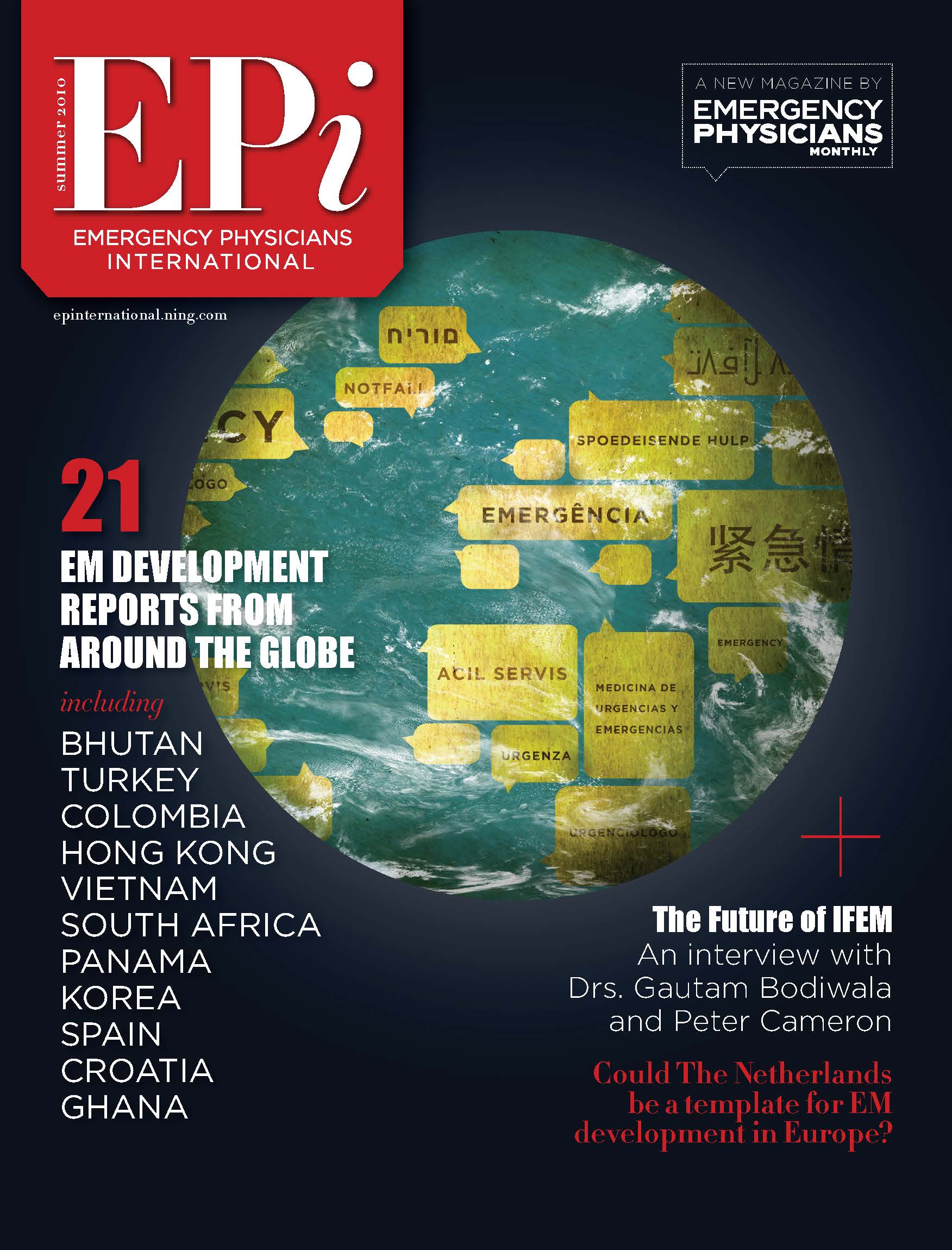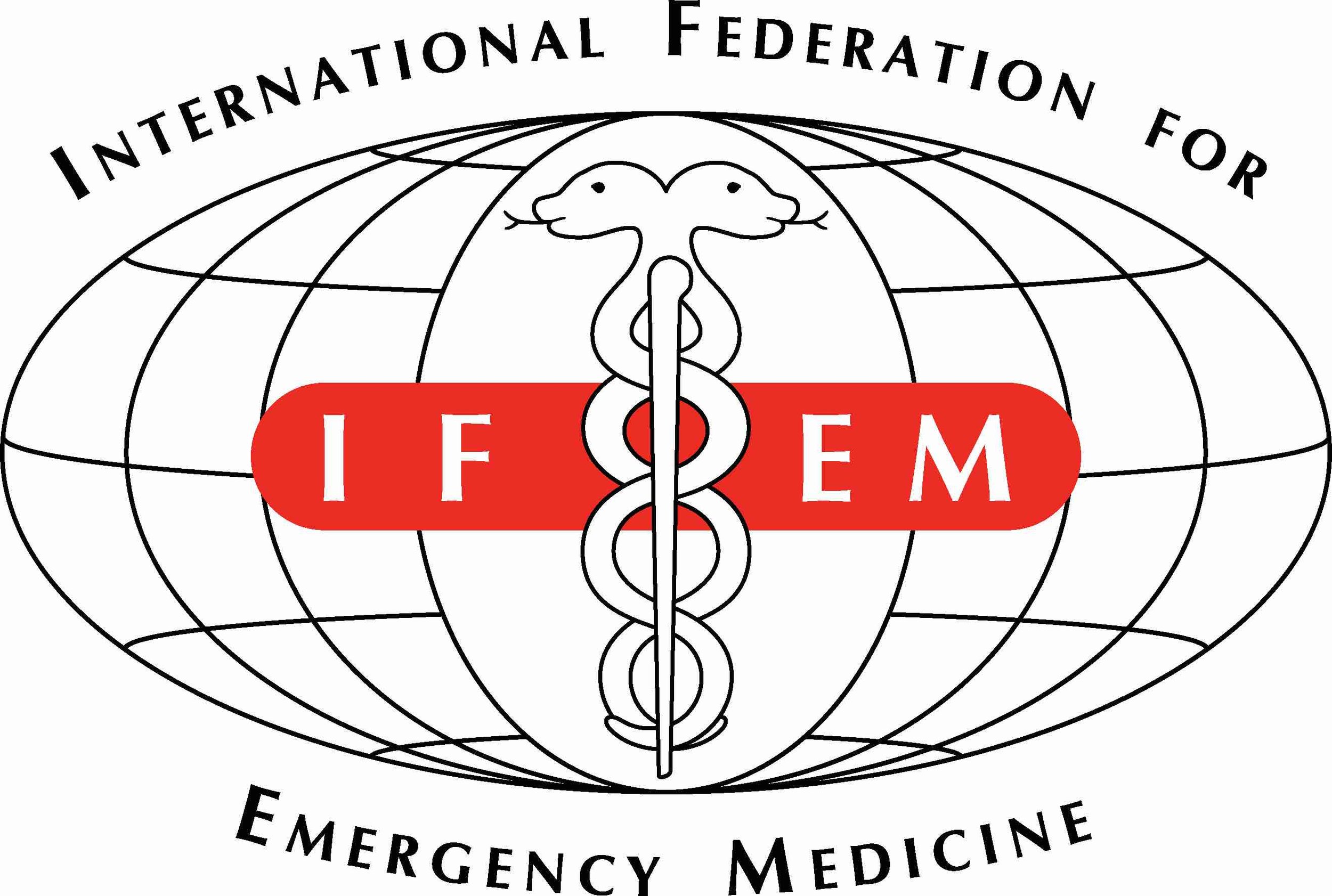IFEM Institute Launches to Tackle Global EM Development Projects
Over the last 20 years or so, I have been deeply involved in global emergency medicine and emergency care systems development. In the early days, most of the interest in learning about emergency medicine or building emergency departments came from the grass roots level; from physicians who were working in and around the emergency systems in their own countries and were asking us for advice and help to build similar systems in their home countries.
As time went on, those grass-roots physicians remained interested and became more organized, while interest in building emergency medicine systems started to come from higher and higher levels, such as from universities or hospitals. Then as time went on further, interest came from even larger organizations, like major hospital groups, university groups and sometimes even governmental levels such as ministries of health, ministries of education, and sometimes even ministries of tourism.
Most recently however we see an increased frequency of interest on even higher levels such as from national leaders, heads of state, giant corporations or large regional governmental levels such as the European Union (EU), the African Union (AU) , the Association of Southeast Asian Nations (ASEAN), the WHO and/or the UN.
With this growing level of interest in emergency medicine systems, and with the constantly ongoing and growing level of need for emergency medicine systems, where do interested parties go to? What is the singular organization that has been developing all aspects of emergency care: starting with clinical care systems, academic and education systems, administrative and managerial systems, economic and financial systems, health legislative systems, health policy in public health systems, and even larger systems like public policy and global health policy for emergency medicine systems? More and more as the years go by, the world needs such a singular organization that can build emergency medicine on national and regional scales.
For these reasons, the International Federation for Emergency Medicine (IFEM, www.ifem.cc) has formed a new satellite organization called the IFEM Institute. The IFEM Institute is a new organization, not-for-profit, dedicated to engaging in large-scale EM development contracts, projects, cooperation and collaborations between IFEM and national EM societies, major hospital networks, national governments, ministries of health, finance, education, tourism or other groups interested in comprehensive, full-scale EM and emergency care systems development.
As a Federation of 55+ emergency medicine societies and organizations from around the world, the IFEM processes within its virtual walls a vast amount of systemic and institutional wisdom, a body of know-how that it can apply to help build and strengthen emergency care systems. However the current form of the IFEM was built as a democratic health professional representative society, not as a business corporation dedicated to building emergency medicine systems country by country by country; hence the need for the IFEM Institute.
More important, there are many large scale emergency care development projects that are simply too large for singular emergency medicine societies to tackle, and especially if those emergency medicine societies are themselves in the early days of development. Projects like building 50+ emergency medicine residencies per country, forming, maintaining and updating national emergency medicine curricula, building national scale emergency medicine and trauma data registries, establishing national board exams, establishing national and regional emergency medicine research databases, and researching and establishing emergency medicine legislative agendas, health policy agendas and public health agendas. These are all examples of projects that are necessary for comprehensive national scale emergency medicine development, but which are often too large, too ominous, too expensive and too unknown for young and emerging emergency medicine societies to tackle and to complete. Hence another reason for the IFEM foundation.
Already pursuing a dozen projects and proposals, the IFEM Institute anticipates forming a common pathway for outside organizations to work with IFEM and with the expanding global emergency medicine community, to tap its vast warehouse of experience, legitimacy and know-how in order to build EM and acute care systems around the world.
As the president of the IFEM Institute, and as the Secretary of IFEM, I encourage you to contact me at any time to engage the International Federation for Emergency Medicine in any or all of your local, national or regional emergency medicine development projects.







